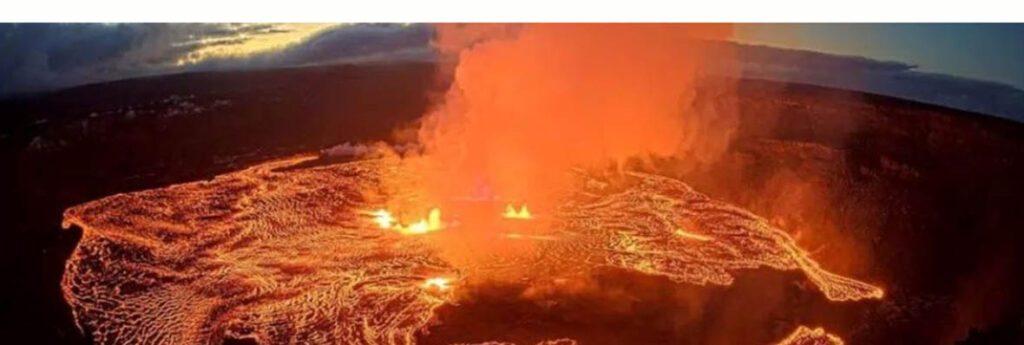Kilauea, the second largest volcano in Hawaii, began erupting on Wednesday after a three-month pause. All activity is within a closed area of Hawaii Volcanoes National Park on Hawaii’s Big Island and has prompted the volcano’s alert level to be raised to warning status and the aviation colour code to go to red as scientists evaluate the eruption and associated hazards.
Images show fissures at the base of the Halema’uma’u crater in the summit caldera generating lava flows on the crater floor’s surface, according to the US Geological Survey’s Hawaiian Volcano Observatory.
Before issuing the eruption notice, the observatory said increased earthquake activity and changes in the patterns of ground deformation at the summit started Tuesday night, indicating the movement of magma in the subsurface.
Kilauea, one of the world’s most active volcanoes, erupted from September 2021 until last December. For about two weeks in December, Hawaii’s biggest volcano Mauna Loa, also was erupting on Hawaii’s Big Island.
After a short pause, Kilauea began erupting again in January. That eruption lasted for 61 days, ending in March.
A 2018 Kilauea eruption destroyed more than 700 homes.
Before the major 2018 eruption, Kilauea had been erupting since 1983, and streams of lava occasionally covered farms and homes. During that time, the lava sometimes reached the ocean, causing dramatic interactions with the water.

